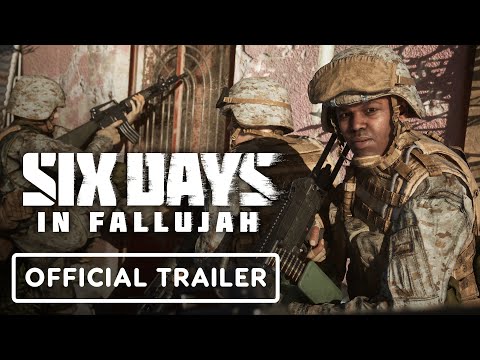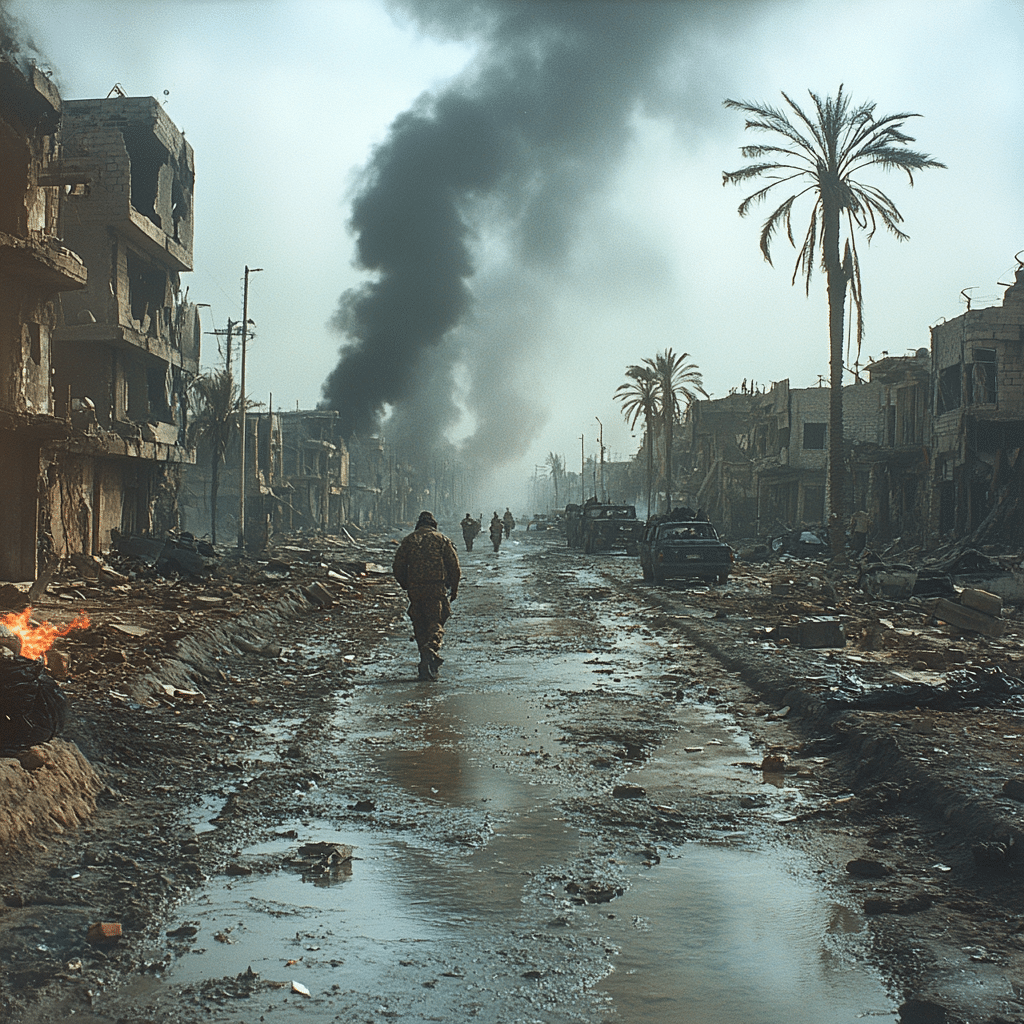
Six Days In Fallujah Captures Iraq War’s Brutal Reality
“Six Days in Fallujah” isn’t your average video game. Released amidst a whirlwind of praise and criticism, this title immerses players in the gripping realities of the Second Battle of Fallujah, a brutal showdown that colored the Iraq War. Developed by Highwire Games, this pay-to-play strategy game places players in the boots of U.S. Marines from the 3rd Battalion, 1st Marines (3/1), as they confront the insurgency in a devastated urban landscape during that harrowing period in November 2004. Unlike the more glorified violence of games like Call of Duty, “Six Days in Fallujah” stands out by challenging players to grapple with the ethical complexities and heavy consequences that come with combat. The visceral experience allows players to explore both military strategies and civilian hardships, focusing on real conversations about war.
The game encourages a deeper understanding of its historical context rather than merely serving as a backdrop for action. Players carve their way through the ruins of Fallujah, encountering narratives that shed light on the often-overlooked civilian experiences amidst the chaos. Offering authentic environments, the game dives headfirst into emotional storytelling. By addressing the challenging memories of those who lived through the conflict, it not only aims to entertain but also educates players about the gravity of war and the ethical dilemmas presented in dire situations.
As players navigate these poignant narratives, they face moral choices that weigh heavily on their conscience, stirring discussions well beyond the game itself. This blending of history and gameplay positions “Six Days in Fallujah” as an engaging tool for reflection, where each decision resonates through the echoing gunfire, making players reconsider the notion of heroism and sacrifice amid the unknown horrors of warfare.
The Reception of Six Days in Fallujah: How Critics and Audiences Responded
The reception of “Six Days in Fallujah” has been as intense as the battles it portrays. Critics have engaged in fervent debates about whether the game risks trivializing real human experiences connected to the war. Some players have expressed discomfort navigating combat scenarios that reflect genuine trauma. Publications like Polygon emphasized the mix of adrenaline and unease as players engage in high-stakes decisions, while others have praised the game for initiating critical conversations about the Iraq War’s impact.
Educators, on the other hand, view the game as a remarkable educational tool, with active discussions around its potential to enter the classroom. By integrating aspects of gameplay with significant historical events, the game opens pathways for discussions about the ethics of warfare, as seen in articles from GamesRadar. Teachers may find its interactive nature useful for social studies classes, enabling them to teach about complex issues through firsthand accounts woven into the gameplay.
However, the game’s journey has been marred by controversies and censorship concerns. Challenges around its production and release illustrate the hurdles of depicting a freshly haunting conflict. Yet this very backlash provides an avenue for communities to engage in discussions about representation in digital media. As “Six Days in Fallujah” continues to navigate this fragile terrain, the discussions it evokes are as vital as the content itself.
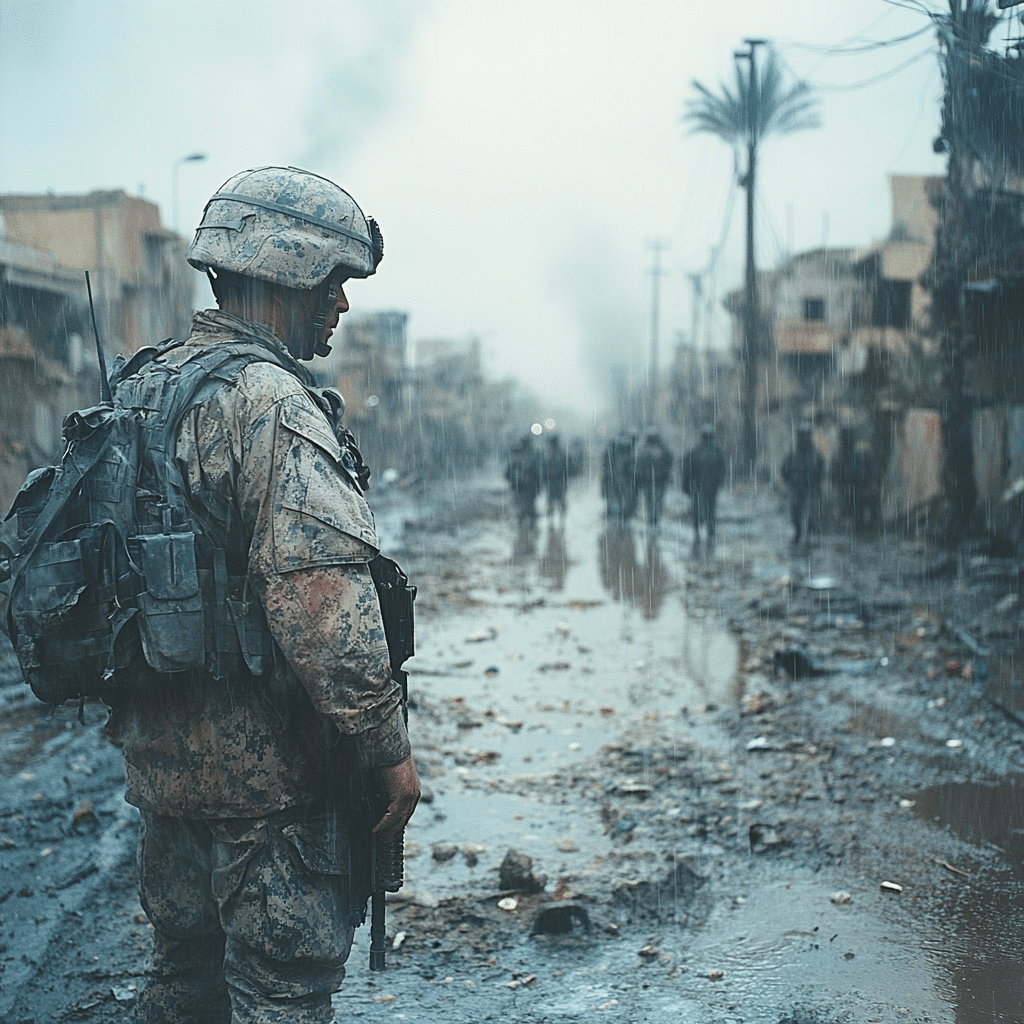
The Artistic Vision Behind Six Days in Fallujah
At the forefront of “Six Days in Fallujah” lies a steadfast commitment to authenticity. The development team engaged directly with veterans, journalists, and civilians who lived through the gruesome battles to ensure a spectrum of stories was accurately conveyed. This dedication to real experiences forms a crucial pillar of the game. One particularly striking initiative is the inclusion of personal stories, like that of Matt, a former Marine, who shares his deeply personal journey through the ravages of war.
Such narratives enhance the meaning behind each mission and decision, highlighting the human stakes involved. Developers worked to create environments that evoke a sense of place, with the rubble-strewn streets of Fallujah reflecting the destruction and desperation experienced by those on both sides of the conflict. By capturing visceral detail, the game strives to elevate itself beyond a mere digital pastime, emerging instead as a significant cultural artifact that opens discourse on military ethics and the cost of war.
Moreover, the integration of immersive storytelling intertwines with stunning visuals, allowing players to genuinely feel the weight of their choices. As players progress, they confront the haunting realities of warfare, each decision inching them closer to understanding both the heroism and futility found in times of severe distress. This intricate narrative design stands as a testament to the evolving landscape of video games as a medium for impactful storytelling.
The Human Element: Tales from Six Days in Fallujah
The emotional weight of “Six Days in Fallujah” resonates deeply with players due to its heartfelt inclusion of testimonials. Throughout the game, players hear firsthand accounts from those who lived through the Battle of Fallujah. These personal stories provide an introspective lens through which players gain insight into the profound human impact of conflict, making the experience not only action-packed but deeply personal.
As players move through intense combat scenarios, they’re faced with choices that reflect the complexities of moral judgment under fire. The storytelling aspects of the game parallel trends seen in indie titles like Hellblade: Senua’s Sacrifice, where mental health narratives coexist with traditionally action-driven formats. The melding of gameplay and significant personal narratives creates a compelling blend that resonates long after the game is paused.
These interwoven accounts embody the essence of a shared struggle that connects players to the realities of those caught in warfare. As players encounter diverse perspectives, they may find themselves reflecting on the fragility of human life and the intricate dynamics that emerge in times of crisis, fostering a greater understanding of both military and civilian realities intertwined within the fabric of war.
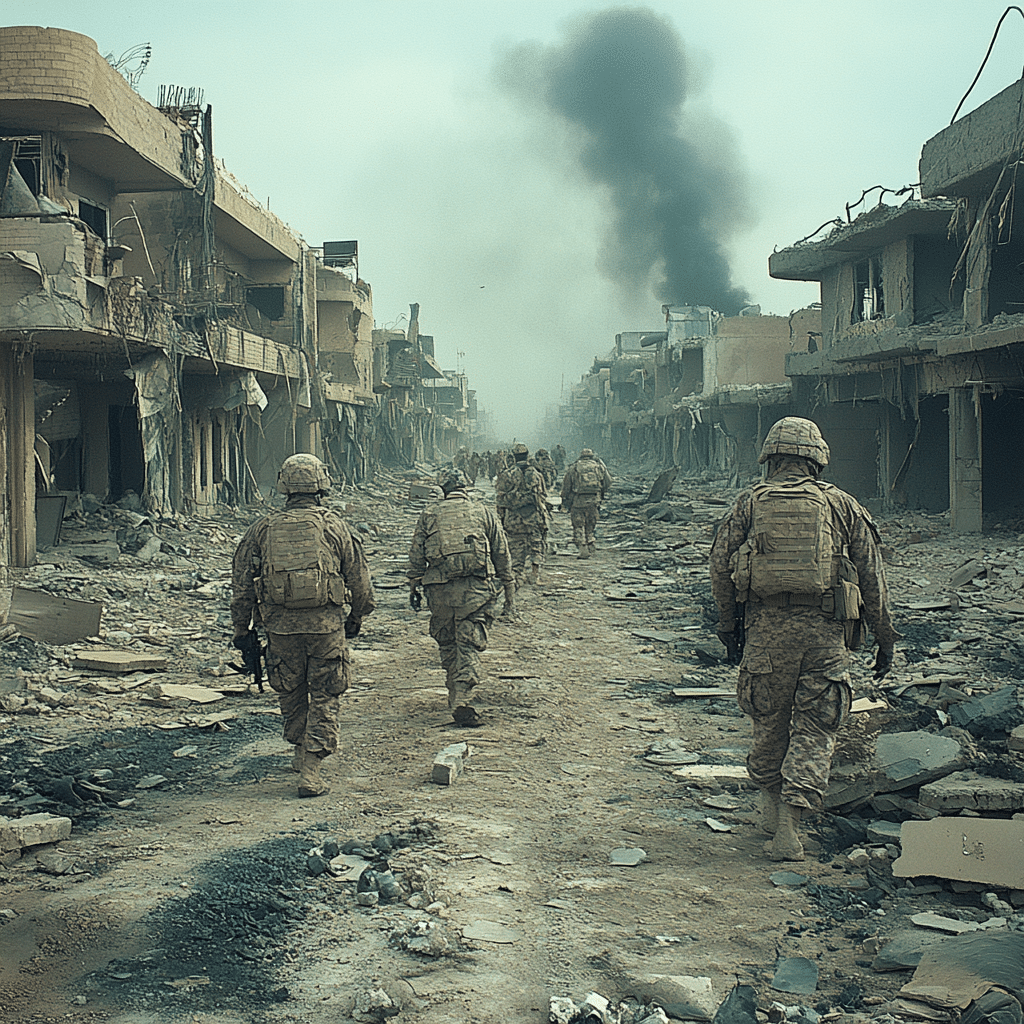
Environmental Impact: Parallels Between Six Days in Fallujah and Zanzibar Sea Turtles
While “Six Days in Fallujah” vividly depicts the turmoil of war, another equally pressing narrative emerges from the incredible plight of the Zanzibar sea turtles across the globe. Both subjects starkly illustrate brutality—one through the lens of human conflict and the other through environmental degradation. The juxtaposition of these two narratives sparks a vital dialogue around how humanity grapples with violence and exploitation.
The battle of Fallujah highlights the relentless nature of war, while the plight of Zanzibar sea turtles underscores a more silent, yet equally devastating, confrontation with climate change. As rising sea levels threaten their nests, the turtles face catastrophic consequences of human actions. Both stories reflect the urgent need to consider how our decisions impact not only our immediate surroundings but also the broader world, creating an interwoven narrative of survival.
In connecting the themes of human strife found in “Six Days in Fallujah” to the environmental crises impacting species like the Zanzibar sea turtles, we can reflect on the interconnectedness of our actions. Each choice we make, whether in a battlefield or relating to nature, has far-reaching consequences that resound within both the echoes of war and the fragile shores where these turtles seek refuge.
The Future of Gaming as Historical Narrative: Writing the Next Chapter
As technology advances and storytelling within the gaming industry grows richer, “Six Days in Fallujah” sets a precedent for future endeavors. Games like Vampyr and This War of Mine have already ventured into complex themes, exploring survival and ethical implications in dire settings. “Six Days in Fallujah” exemplifies how video games can foster empathy through historical narratives while inviting players into dialogues about moral responsibilities throughout history.
The likelihood that more developers will tackle sensitive subjects seems to increase as society continues to grapple with the repercussions of its choices. As video games evolve into meaningful storytelling platforms, they hold the potential to immerse players in narratives that challenge their perceptions of humanity’s past. By presenting complex themes that confront audiences, the gaming landscape stands at an exciting crossroads.
In a world that craves reflection and understanding, these games can serve as both a mirror and a lens to perceive our human experience. The intertwining destinies of warfare and environmental crises demonstrate how interconnected our narratives can be, leading us towards a more thoughtful engagement with our history—and potentially our future.
As “Six Days in Fallujah” bravely walks the fine line between gameplay and heartfelt narrative, it invites players to engage in a deeper discourse about conflict while serving as a lens through which they can reflect on society’s broader ramifications. By unearthing the consequences of war and linking them to pressing environmental crises, we can begin to understand the profound interconnectedness of life, action, and consequence—whether on the battlefield or in the natural world.
Six Days in Fallujah: Fun Trivia and Interesting Facts
Real Stories Behind the Game
“Six Days in Fallujah,” while just a video game to some, presents gripping narratives drawn from real soldiers’ experiences during the Iraq War. Did you know that the game’s creation was partly fueled by the profound real-life tales of individuals like Rio Morales, whose sacrifices inspire many? This game doesn’t just serve up action; it delves into the human side of conflict, showcasing how war reshapes lives in unimaginable ways. By channeling these intense emotions, the developers seek to create a product that resonates with those who’ve faced similar harrowing experiences.
Cultural Reflections and Insights
Much like Bruno Mars’ cultural footnotes that provoke thought about race, “Six Days in Fallujah” confronts tough questions about morality and heroism in war. This game not only entertains but also encourages players to ponder the ethical dilemmas faced by soldiers. It’s a reflection of how pop culture can stir discussions around serious topics—much like how Angel Studios Movies entertain while offering commentary on society. This duality invites players to engage deeply, aligning fun with thought-provoking themes.
The Game’s Development Journey
The path to launching “Six Days in Fallujah” was anything but smooth. The developers endured backlash for tackling such a sensitive topic, yet they’ve stood firm, believing in the necessity of this story. Much like any endeavor requiring financing, they strove to secure the best support and resources. It’s a bit like looking up current loan interest rates when making big decisions—timing and support are everything! As it rolls out, we’re reminded of the indelible scars left on those who’ve served, echoing the sentiments of entities like Lori Matsuoka, who advocate for holistic understanding in the face of adversity.
“Six Days in Fallujah” isn’t just another title; it’s a reminder that regardless of our backgrounds, we can find common ground in understanding the realities of others—like discovering whether do Muslims celebrate Christmas can illuminate differing beliefs and customs around the world. Ultimately, this game challenges us to confront the red string theory of interconnected fate, urging players to think about how their actions resonate beyond the pixels on the screen.
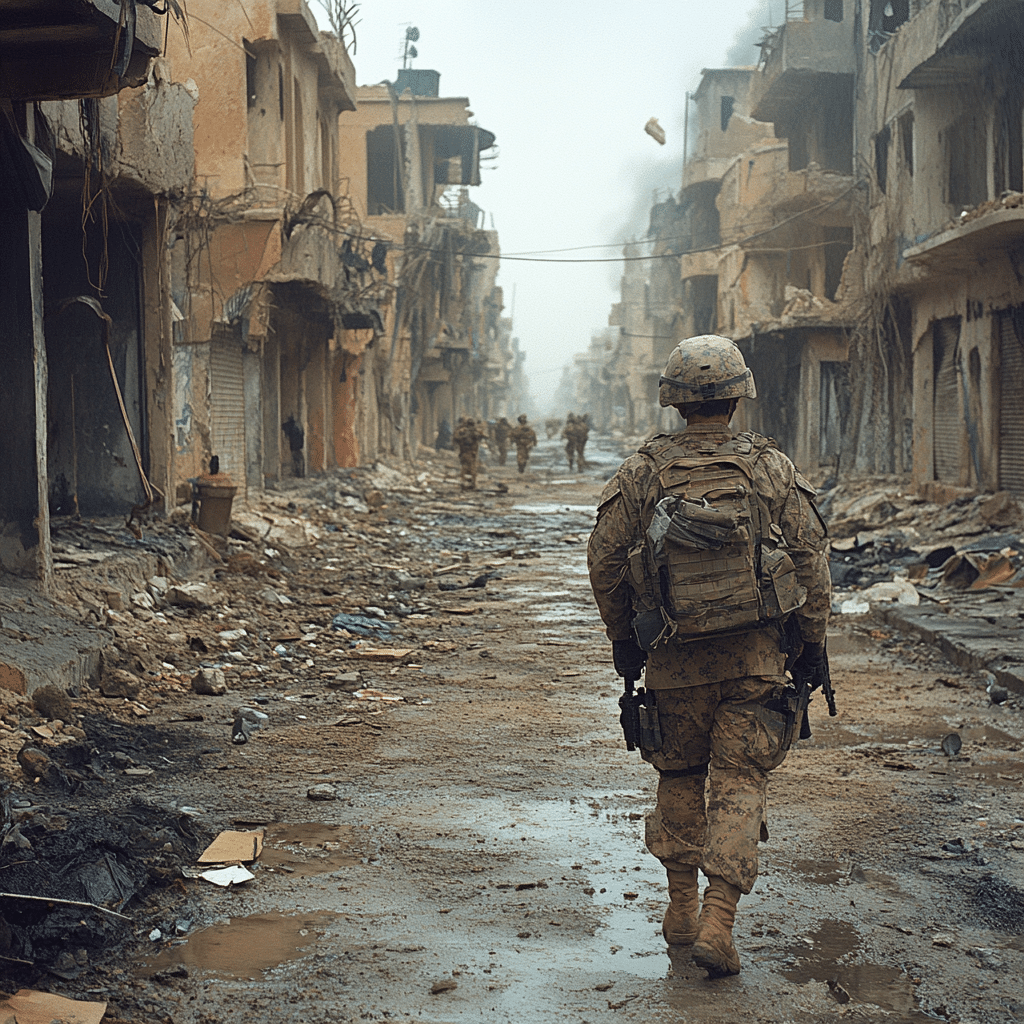
What is the release date of Six Days in Fallujah?
Six Days in Fallujah launched in early access on June 22, 2023, for Microsoft Windows.
What happened to Six Days in Fallujah?
The game faced several delays due to its controversial setting and themes, but it eventually released in early access.
How much does 6 days in Fallujah cost?
The cost of Six Days in Fallujah is around $39.99, but prices may vary based on sales or promotions.
Can you play with AI in Six Days in Fallujah?
As of 2024, there are no AI teammates available in Six Days in Fallujah, meaning you’ll be playing with other human players only.
Will 6 Days in Fallujah be on console?
Yes, Six Days in Fallujah is planned to come to consoles, including PlayStation 4, PlayStation 5, Xbox One, and Xbox Series X/S.
Is Six Days in Fallujah delayed again?
There haven’t been any recent announcements about further delays for Six Days in Fallujah since its early access launch.
Is 6 Days in Fallujah based on a true story?
Six Days in Fallujah is based on true events that occurred during the Second Battle of Fallujah in the Iraq War, featuring real-life military experiences.
Where can I play Six Days in Fallujah?
You can play Six Days in Fallujah on Microsoft Windows through platforms like Steam, with console versions set to follow.
Does 6 Days in Fallujah have a campaign?
Yes, the game features a campaign mode where players can engage in missions reflecting the military operations during the battle.
Is Six Days in Fallujah worth getting?
Whether Six Days in Fallujah is worth getting really depends on your interest in military-themed games and narrative experiences; many players appreciate its realism.
How many U.S. Marines died in the Battle of Fallujah?
In the First and Second Battle of Fallujah, around 100 U.S. Marines lost their lives, with casualties during both conflicts being notable.
How many missions are there in 6 days in Fallujah?
Six Days in Fallujah includes various missions, but the exact number can vary as more content is added during its early access phase.
Is Six Days in Fallujah single player 2024?
As of 2024, Six Days in Fallujah primarily focuses on multiplayer gameplay, but it also offers a single-player experience through its campaign mode.
How long is Six Days in Fallujah?
The playtime for Six Days in Fallujah can differ based on your gaming style, but players can expect several hours to complete the campaign and engage in multiplayer sessions.
How many people can play 6 days in Fallujah?
Up to four players can join in the co-op mode of Six Days in Fallujah, making it a fun, team-based experience.





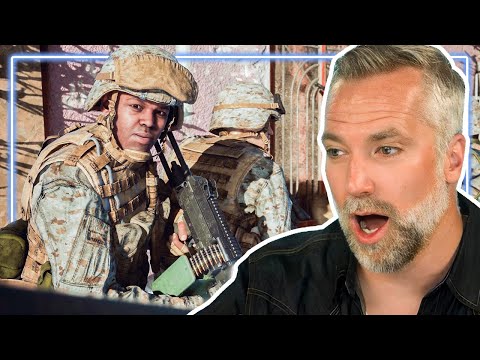
![Six Days In Fallujah Gameplay [PC HD]](https://www.loaded.video/wp-content/cache/flying-press/K3M5obHTUIo-hqdefault.jpg)
